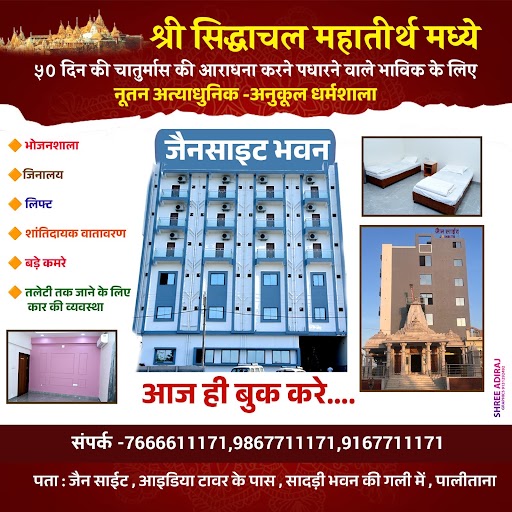Chapter 21 – Theory of Karma and Reincarnation We have seen that our comfortable or uncomfortable situations lie in the activities undertaken by us during this life or earlier lives. Thus, this assumes a theory of rebirth. It is the law of nature that we reap what we sow. However,…
Chapter 20 – Nav Tattva Part II : Samvar, Nirjarä, and Moksha
Chapter 20 – Nav Tattva Part II : Samvar, Nirjarä, and Moksha (Prevention of Karmas, Eradication of Karmas and Liberation) Samvar means prevention of the incoming Karmas Nirjarä means the eradication of acquired Karmas Both are to be resorted to and are therefore considered Upädeya. We should continually strive to…
Chapter 19 – Nav Tattva Part I : Jiv, Ajiva, Punya, Päp, Äsrava, and Bandha
Chapter 19 – Nav Tattva Part I : Jiv, Ajiva, Punya, Päp, Äsrava, and Bandha Jiv, Ajiv, Punya, Päp, Äsrava, Bandha, Samvar, Nirjarä and Moksha are the nine fundamentals or Nav Tattva. The nine tattvas or principles are the single most important subjects of Jain philosophy. They deal with the…
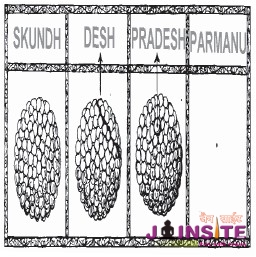
Chapter 18 – Six Substances Part II – Non-Living Substances (Ajiv)
Chapter 18 – Six Substances Part II – Non-Living Substances (Ajiv) Non-living Substances (Ajiv) Anything that does not have life or consciousness is Ajiv. Ajiv literally means without a soul and therefore, they cannot accumulate any karma. They do not have birth, death, pleasure, or pain; they are Achetan (inert). …

Chapter 17 – Six Substances Part I – Living Beings (Jiv)
Chapter 17 – Six Substances Part I – Living Beings (Jiv) Jain Philosophy does not give credence to the theory that the God is the creator, survivor, or destroyer of the universe. On the contrary, it asserts that the universe has always existed and will always exist in exact adherence…
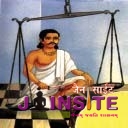
Chapter 16 – King Megharath
Chapter 16 – King Megharath Once there was a discussion going on in Indra’s (head of heavenly beings) court. One of the demi-gods said that there are brave and merciful kings on Earth who would not hesitate laying down their own lives to protect those who come to them for…
Chapter 15 – Application of Nonviolence (Ahinsä)
Chapter 15 – Application of Nonviolence (Ahinsä) Introduction Vegetarianism has been known for thousands of years as a principle of health and environmental ethics throughout India. It remains to this day a cardinal ethic of Jain thought and practices. Each form of life, even water and trees possesses consciousness and…
Chapter 14 – Five Great Vows
Chapter 14 – Five Great Vows Right faith, right knowledge, and right conduct known as Ratna Traya, are the three essentials for attaining liberation. In order to acquire them, one must observe the five vows: The Vrata or vow is a specific code of conduct. In Jain scriptures dealing with…
Chapter 13 – Four Realms
Chapter 13 – Four Realms If we look around us, we see not only men and women, boys and girls, but also cats, dogs, birds, bugs, plants, etc. These are various forms of living beings in this universe. At the same time every second, someone dies and someone is born. …
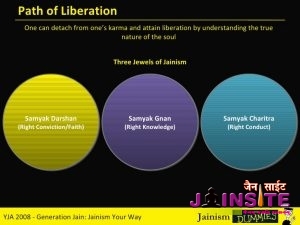
Chapter 12 – Path of Liberation – Three Jewels
Chapter 12 – Path of Liberation – Three Jewels The ultimate goal of all life and conduct in Jainism is to realize the free and blissful state of our true being. True philosophy should result in removing all bondage (karma) in the process of purifying the soul. The central theme…
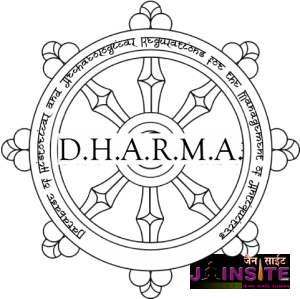
Chapter 11 – What Is Dharma (Religion)
Chapter 11 – What Is Dharma (Religion) May the entire universe attain bliss, May all beings be oriented to the interest of others, Let all faults be eliminated and May people be happy everywhere. Jain Verse May all persons be happy, May all be disease free, May all…
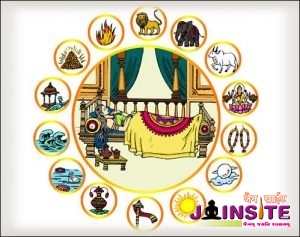
Chapter 10 – Dreams of Mother Trishalä
Chapter 10 – Dreams of Mother Trishalä Tirthankar Mahävir’s soul was a heavenly god in the tenth heaven before being born as Prince Vardhamän. At midnight on the sixth day of the bright half of Ashädh, his Äyushya Karma ended, and so did his life as a heavenly god (Dev). …

